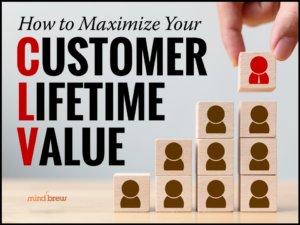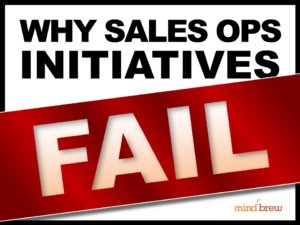It’s a great time to be a Sales Operations professional…
Across dozens of different sectors, the economic optimism is really hard to miss. Companies are clearly feeling good about the future and they’re gearing up for growth. But as the last downturn still looms large in recent memory, companies want to be smart about how they grow.
And in the interest of driving smarter growth, more companies than ever before are looking to take their existing Sales Ops functions to the next level; or working to establish new Sales Ops functions where none have existed before.
That said, if you really want to capitalize on this “rising tide” you’ll need to acknowledge certain realities associated with a career in Sales Operations:
1. Few will really know what Sales Ops should be doing.
We’ve not yet reached a place where Sales Operations is a clearly-defined practice, with well-established areas of focus and documented standards and practices. So while many more companies are now buying into the overall promise of Sales Ops, only a small percentage of those will actually know how to make it happen.
Recognize that you might have to fill this void in understanding. You might have to counter some flawed assumptions and preconceived notions about what Sales Ops can and should be doing. In a very real sense, you might have to create your own job description.
For some, this is a scary proposition, fraught with uncertainty and risk. Others, however, will recognize that it’s tremendous opportunity. Hopefully, dear reader, you fall into the latter camp.
2. You’ll have to take responsibility for your own training.
Given the situation described above, it’s just not very realistic to expect that your employer will proactively provide all of the training and education you’ll need to succeed in Sales Operations.
It’s not that they are unwilling, however. In fact, most employers are more than happy to provide whatever you need to make them more money! It’s just that they may not know exactly what you need, or even what’s available.
So you’ll have to tell them. You’ll have to take responsibility for your own professional development, vet the available training options and educational resources, and ask for what you need.
3. Demonstrable results are the best resume builders.
One thing true in nearly any profession or career path is that demonstrable results tend to cut through a lot of confusion and uncertainty. Even when others are somewhat clueless about what you do, how you do it, or whether you’re actually any good at it, the results you’ve been able to produce are very hard to misinterpret or dismiss.
For example, most of us are unable to evaluate an architect by looking at their daily work habits, the blueprints they generate, their industry certifications, and so on. All of that certainly helps, of course. But since we’re not experts in this field, we won’t be entirely confident in our assessment until we’ve walked through a dozen houses they’ve designed.
When we don’t know a lot about the process itself, we look to results for clarity.
Similarly, tell me you’ve implemented a “meaty middle” improvement program, built an early warning system for customer defection, or established an analytical regime for account expansion, and I might suspect that you know your stuff.
But unless I know the topic inside and out myself, I can’t really be sure.
On the other hand, show me how you’ve boosted median sales production by 22%, reduced YoY revenue attrition by 37%, or increased annual customer value by 19%, and even if I know very little about Sales Ops, I’ll have absolutely no doubt that you know how to do some really important and valuable things!
The bottom line is at this stage in the evolution of Sales Operations as a business practice, you can’t just hope that everyone else “gets it”. While there’s never been a better time to be a Sales Ops practitioner, the greatest rewards will go to those who can define a meaningful agenda, proactively develop their own capabilities, and produce results that are obvious to everyone.














